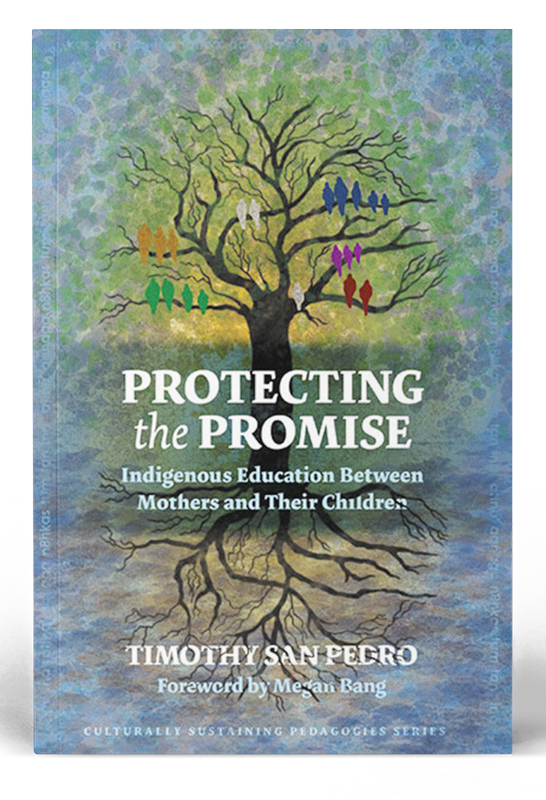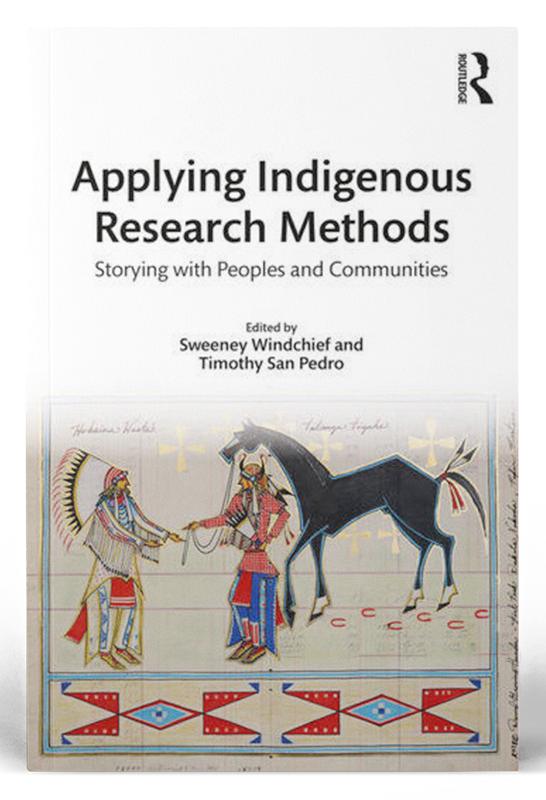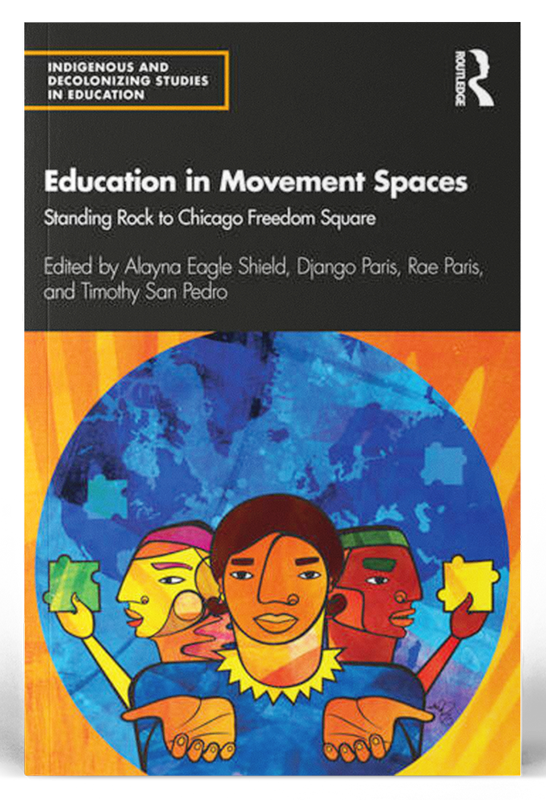When envisioning education beyond school walls,
When we practice our pedagogy in ways that remove
walls blockading and dividing school from community,
When we alter our perceptions that education
is central to nation-building—
What richness in languages,
in stories,
in history,
might breach that which separates us,
connecting us to a richer, fuller education
for our students?
When envisioning education beyond school walls,
When we practice our pedagogy in ways that remove
walls blockading and dividing school from community,
When we alter our perceptions that education
is central to nation-building—
What richness in languages,
in stories,
in history,
might breach that which separates us,
connecting us to a richer, fuller education
for our students?
Decolonizing Education
Timothy San Pedro is an Associate Professor of Multicultural and Equity Studies in Education at The Ohio State University. San Pedro’s scholarship focuses on the intricate link between motivation, engagement, and identity construction to curricula and pedagogical practices that re-center content and conversations upon Indigenous histories, knowledges, and literacies.
Protecting the Promise
Protecting the Promise features a collection of short stories told in collaboration with five Native families that speaks to the everyday aspects of Indigenous educational resurgence rooted in the intergenerational learning that occurs between mothers and their children. This work illuminates the potential for educational resurgence and counters deficit paradigms too often placed on Indigenous communities. It also demonstrates the need to include Indigenous Knowledges within the curriculum for both in-school and out-of-school settings. These engaging narratives reframe Indigenous parents as critical and compassionate educators, cultural brokers, and storytellers who are central partners in the education of their children.
Applying Indigenous Research Methods
Applying Indigenous Research Methods focuses on the question of “How” Indigenous Research Methodologies (IRMs) can be used and taught across Indigenous studies and education. In this collection Indigenous scholars address the importance of IRMs in their own scholarship, while focusing conversations on the application with others. Each chapter is co-authored to model methods rooted in the sharing of stories to strengthen relationships, such as yarning, storywork, and others. The chapters offer a wealth of specific examples, as told by researchers about their research methods in conversation with other scholars, teachers, and community members.
Applying Indigenous Research Methods is an interdisciplinary showcase of the ways by IRMs can enhance scholarship in fields including education, indigenous studies, settler colonial studies, social work, qualitative methodologies, and beyond.
Education in Movement Spaces
Education in Movement Spaces amplifies the distinct, intersecting, and coalitional possibilities of education in the spaces of ongoing movements for Native and Black liberation. Contributors highlight the importance of activist-oriented teaching and learning in community encampments and other movements spaces for the preservation and expansion of resistance education. With chapters from scholars, educators, and organizers, this volume offers lessons taken from these experiences for nation-state schools, classrooms, and spaces of teaching and learning that are most commonly experienced by Native and Black children and educators. Through attention to recent social movement across the United States—from Standing Rock to Black Lives Matter—this book demonstrates the vital connections between Native and Black communities educational futures.







